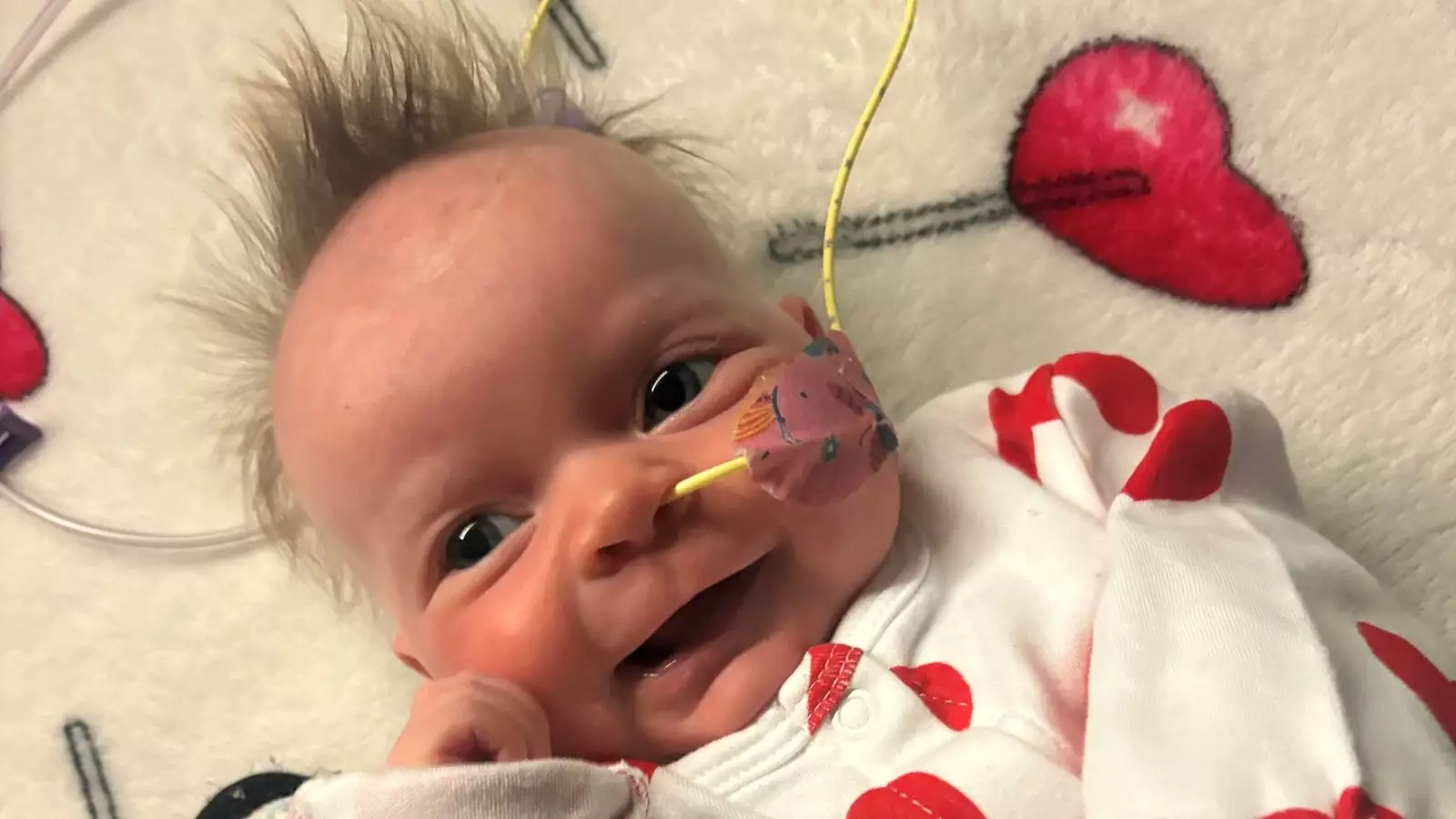In South Wales, a heart-wrenching story has emerged that highlights the critical need for stem cell donors. The mother of a three-month-old baby girl, Dolcie-Mae Edwards-Raymond, has made a passionate appeal to the public in hopes of finding a matching stem cell donor for her daughter, who has been diagnosed with a rare and life-threatening condition known as hemophagocytic lymphohistiocytosis (HLH). This plea is not just a call for help; it underscores the broader issues surrounding rare medical conditions and the urgent requirement for awareness around stem cell registration.
Dolcie-Mae’s plight began with a series of troubling symptoms after birth. Initially thought to be the result of a viral infection, her case took a drastic turn when doctors identified the underlying cause as HLH—a severe immune deficiency disorder. This condition results in an alarming overactivity of certain white blood cells that endanger the body’s wellbeing. It is a reminder of how quickly health can deteriorate and how devastating the diagnosis of a rare disease can be for families, especially when it occurs in newborns.
For her parents, Courtney-Jade Edwards and Ashley David Raymond, the news was not just shocking; it was life-altering. The moment they learned that their newborn was battling a condition that could potentially turn fatal was an emotional blow that no parent should have to endure. The helplessness they felt is an unfortunate reality shared by many families facing similar uncertainties in medical diagnoses.
Dolcie-Mae’s medical journey has led her to the Royal Victoria Infirmary in Newcastle, where she is receiving specialized care. However, this is a temporary respite until a matching stem cell donor can be found. This situation drives home a crucial point: the mere presence of advanced medical facilities is not enough if the essential resources, such as donors, remain scarce.
Ms. Edwards, in her desperation and determination, is calling for individuals aged between 16 and 30 to consider joining the Anthony Nolan stem cell register. This is not merely an appeal for her daughter but a wider initiative to help patients ranging from children to adults suffering from similar conditions. The sympathetic call to action is underscored by the statistics that show a drastic need for more individuals to step forward as stem cell donors.
The emotional burden borne by families dealing with severe health issues cannot be overstated. Ms. Edwards articulated her anguish through her words, revealing the despair and helplessness that overshadowed their journey. It is a feeling echoed by families who face the daunting specter of rare illnesses that demand uncommon levels of resilience and support. The inability to effectively combat a disease due to a lack of resources or donors is an agony that wraps around many households, amplifying their fears and struggles.
The broader implications of Dolcie-Mae’s story highlight a systemic issue: the gap between patients in urgent need of stem cell transplants and the availability of willing donors. Each appeal, like the one from Ms. Edwards, serves as a poignant reminder of the role individual actions can play in transforming lives.
In light of this emotional narrative, organizations such as Anthony Nolan play a vital role. They work tirelessly to inspire and mobilize potential donors to sign up and contribute to this lifesaving effort. The organization’s director of register development, Charlotte Cunliffe, emphasizes the necessity of volunteer donors in providing hope for families like Dolcie-Mae’s. With the understanding that HLH and similar disorders require urgent intervention, the call to action becomes ever more significant.
To be a part of something so crucial as stem cell donation is not only about offering medical help; it is about affirming life and sharing hope. Joining the stem cell register is a simple yet powerful act that could result in giving a second chance at life to those, like Dolcie-Mae, who are battling their bodies’ internal crises.
The journey of Dolcie-Mae Edwards-Raymond is a testament to the unyielding spirit of families navigating the complex landscape of rare diseases. As Ms. Edwards states, no family should have to endure such pain, and each of us has the power to make a difference by signing up for stem cell donation. The effort to find a match for Dolcie-Mae and others like her is an urgent one. Each registration is a rope thrown to those struggling to stay afloat in turbulent waters of medical adversity. By stepping up and joining the stem cell register, we aren’t just signing up for a donor list; we are joining a mission to save lives.


Leave a Reply